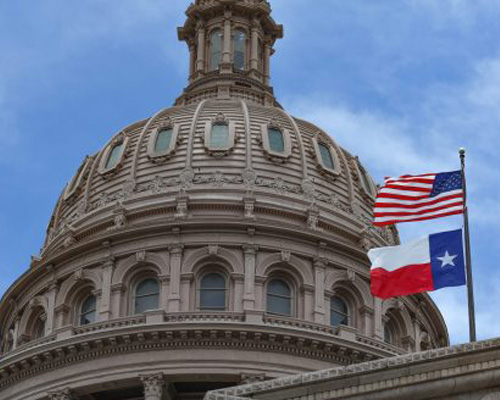Discipline Bills: RISD’s top legislative priority (House Bill 6) that allows teachers greater flexibility regarding student discipline will be voted on in the Texas House next week. We will be encouraging RISD legislators to support the legislation and send it to the Senate for further consideration passage. Also, the Senate also has several discipline bills that are moving through the Senate and RISD is supportive of those bills as well.
House Passes Budget Bill – After a long day and night of debate ending at 3:00 a.m. on April 11, the House passed its version of the state budget for the 2026-27 state budget with a 7.7% increase to $335.7 (compared to the Senate version at $332.9 billion) in general revenue spending compared to the last two-year budget.
The budget includes $51 billion for ongoing property tax relief including the $3.5 billion in new relief proposed this session, an additional $7.6 billion for public school funding formulas, $1 billion for a new Education Savings Account program, a $400 million increase in school safety funding, and $500 million for new math and literacy programs and academies.
The state budget will now go to a conference committee where five members from the Senate and five members from the House will work on the final details. For more information, read $337 billion, two-year budget Texas House approval by the Texas Tribune.
School Funding: It seems that the House and Senate have agreed to which chamber will be the “leader” on which topic: the Senate will carry the voucher/ESA bill (now CSSB 2) and the House will carry the school funding bill – HB 2.
The full Texas House is expected to debate HB 2, the major school funding bill, on the floor in the coming days. The 128-page HB 2 adds $7.7 billion in public education funding over the biennium through a variety of provisions. These include increasing the basic allotment, shifting to a new intensity of service model for special education, and raising the small- and mid-sized district adjustment.
On average, it means about a $550 per-student increase for urban and suburban schools, a $2,700 increase for rural schools, and a $980 increase for charter schools. For districts that see less of a benefit, or even a potential loss due to the elimination of certain existing formulas, the bill sets a $200 per-student floor to help offset the impact. Brad Buckley, Chairman of the House Public Education committee and author of the bill, has said they are still making corrective changes to the bill to ensure benefits to all school districts.
As a comparison, public schools entered this session needing about $20 billion for the biennium just to maintain the same purchasing power they had in 2019.
Next Week: The House Public Education Committee will meet on Apr. 15 to hear public testimony on 12 bills on various topics. See the Committee’s agenda of bills here. No meeting has currently been scheduled for the Senate Education Committee, but meetings for this committee are typically held on Tuesdays and Thursdays.
Watch the Texas House in session.
Watch House committee meetings.
Watch the Texas Senate in session.
Watch Senate committee hearings.
Legislative Corner is published periodically throughout the 89th Texas legislative session. For more information about RISD’s legislative involvement and priorities, please visit the legislative page here. Other resources include Texas Legislature Online (TLO) – find legislation (bills), committee hearings, legislative member info, and more; The Quorum Report – sign-up for “Daily Buzz” or a listing of political news articles; Texas Tribune – online daily news, also a data dashboard for education.



